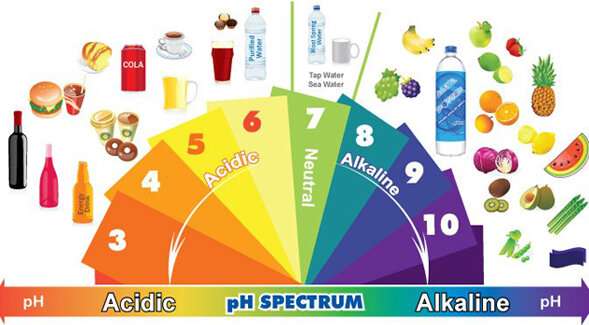
Fresh and processed meats, cheese, eggs, sugary food, soft drinks, and grains are acid-producing foods. For cancer survivors who have a reduced capacity to process such foods that produce sulfuric, phosphoric, or organic acids, it can increase their mortality risk trifold if they also smoked in the past, a new study found.
Public health researchers at San Diego State University analyzed the diet patterns of nearly 3,000 women who had either smoked in the past or had never smoked, but have had breast cancer. Their findings could have implications for the dietary guidelines for cancer survivors.
“Higher acid producing foods can lead to higher mortality from all causes, not just from cancer,” said Tianying Wu, an associate professor of epidemiology, whose research at the School of Public Health focuses on nutrition and aging related outcomes among cancer survivors. “Some breast cancer survivors had highly acidic diets, but if they were past smokers with a long history of high intensity smoking, their risk was three times higher than those who never smoked.”
Smoking increased the risk for all cancer mortality, including breast cancer. In addition, women who had smoked before and continued to eat acidic foods also had a higher incidence of breast cancer recurrence.
“Meat and cheese can be the main culprits, as they have a lot of protein. Vegetables are alkaline producing,” Wu said. “While some fruits have high acidic content, once ingested, they convert to alkaline. A diet balanced between acidic- and alkaline-producing foods is best.”
Wu is first and corresponding author of the study, published in the Journal of Clinical Medicine in June. She designed and conducted an ancillary study by leveraging data collected from a large cohort, the Women’s Healthy Eating and Living study undertaken by John Pierce, professor emeritus of cancer research with the department of family medicine and public health at the University of California San Diego.
The women were followed for an average of 7.3 years, and given periodic dietary assessments.
Cancer survivors who also smoked in the past will have a reduced capacity to process acidic foods and to excrete excess acid because they have impaired renal and lung functions essential to excrete acids, Wu said.
Current dietary guidelines do not consider the impact of acid producing diets on increased risk for breast cancer mortality, Wu explained. More importantly, they do not consider the differing susceptibilities to acid-producing diets between past smokers and people who never smoked, among breast cancer survivors.
Past smokers account for 35-40% of breast cancer survivors, hence, it is important to have specific guidelines for past smokers, Wu emphasized. Diets are definitely not one size fits all. Individualized nutrition is one of the emphasis of 2020-2030 strategic plans for the National Institutes of Health’s nutrition research.
Source: Read Full Article
